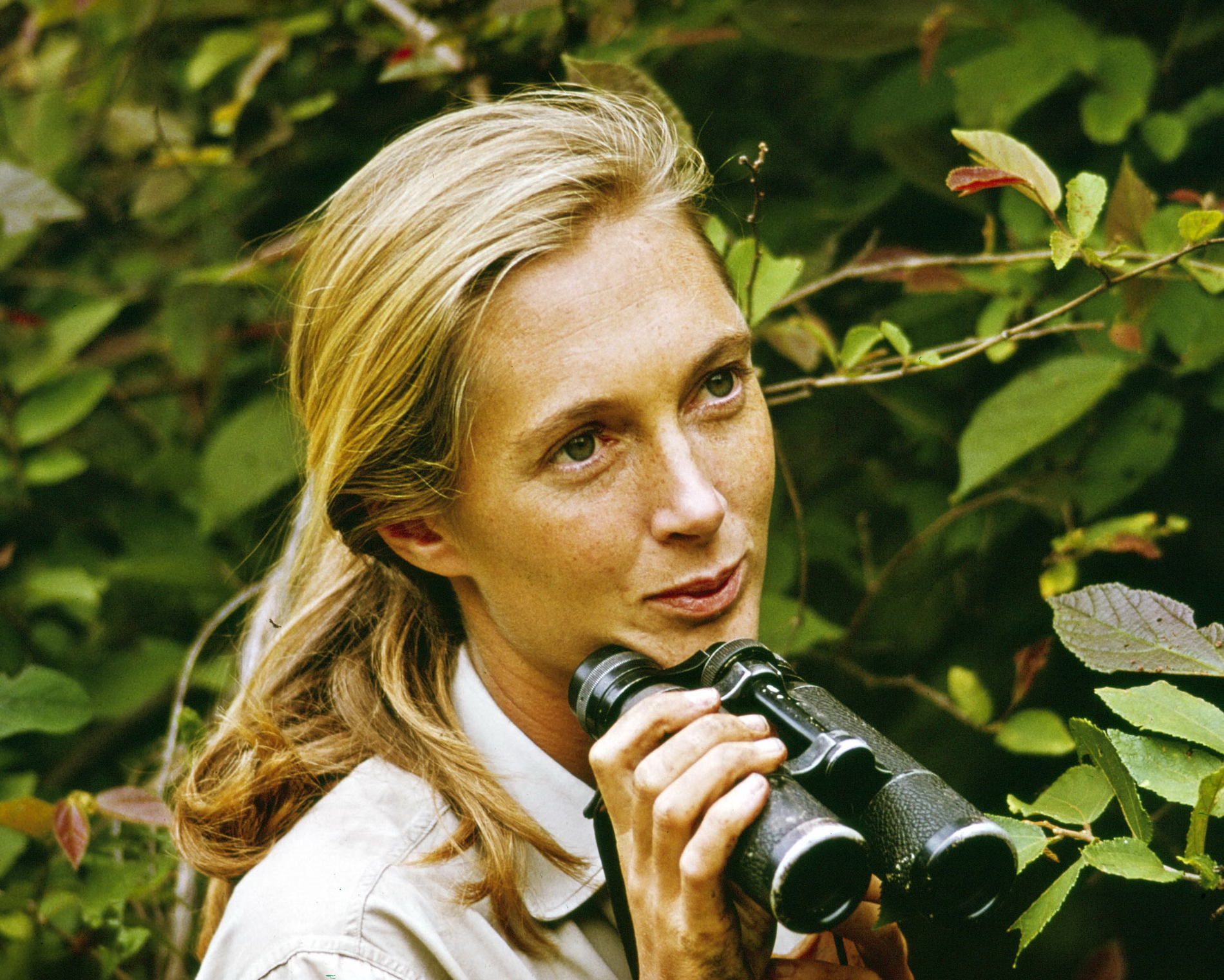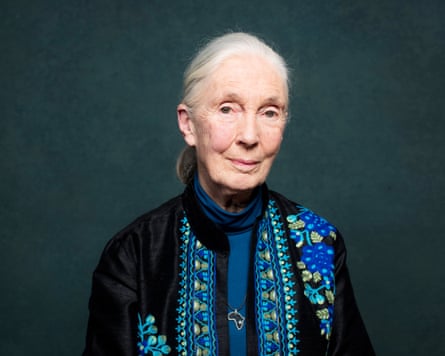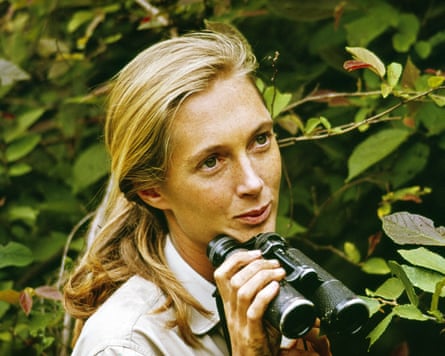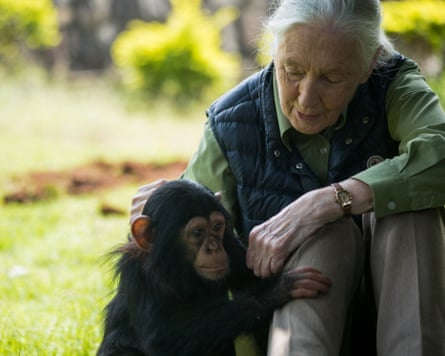Jane Goodall, world-renowned primatologist, dies aged 91

The world-renowned primatologist Jane Goodall has died at the age of 91, her institute has said.
The Jane Goodall Institute announced that she had died of natural causes while in California as part of a US speaking tour.
“Dr Goodall’s discoveries as an ethologist revolutionised science,” the statement read. “She was a tireless advocate for the protection and restoration of our natural world.”
Born in London in 1934, Goodall began researching free-living chimpanzees in Tanzania in 1960. In 1977 she founded the Jane Goodall Institute, which works to protect the species and supports youth projects aimed at benefiting animals and the environment.
She was considered the leading expert on chimpanzees, her career spanning more than 60 years. Her research was pivotal in proving the similarities in primate and human behaviour.
The renowned conservationist was on stage in New York just last week, before appearing talking about her work on a Wall Street Journal podcast two days later.
She was due to appear at a speaking event reflecting on her long life and career in Los Angeles on 3 October, before another event in Washington DC the following week.

Jane Goodall photographed in London in 2017. Photograph: David Levene/The Guardian
Tributes poured in from around the world from conservation and animal rights charities, as the UN praised how she had “worked tirelessly for our planet and all its inhabitants, leaving an extraordinary legacy for humanity and nature”.
Greenpeace UK’s co-executive director, Will McCallum, said Goodall was “one of the true conservation giants of our time”.
After developing a love of animals from an early age, Goodall visited a friend in Kenya in the late 1950s and began working for an archaeologist there, who sent her to study primate behaviour in London.
While still in her 20s, Goodall began researching chimpanzees at Gombe Stream national park in Tanzania. Her work observing their social behaviour helped challenge the idea that only humans could use tools and that chimps were vegetarian.
She went on to set up the Jane Goodall Institute to improve the understanding and treatment of primates, and to protect their natural habitats with the help of local people. It now has officers in more than 25 countries around the world.
Goodall, who was awarded the title of Messenger of Peace by the UN in 2002, was an outspoken advocate of environmental issues and campaigned against the use of animals in medical research and zoos.

Jane Goodall in the 1965 CBS television special Miss Goodall and the World of Chimpanzees. Photograph: CBS Photo Archive/CBS/Getty Images
In 1991, the institute launched the Roots and Shoots project to involve young people in conservation. The project started with a group of students working with Goodall but went on to create a network of active young people across nearly 100 countries.
Earlier this year, the institute’s Hope Through Action project faced funding cuts from the US government under Donald Trump, after it had been pledged $29.5m (£22m) over five years.
The initiative was designed to protect endangered chimpanzees and their habitats in western Tanzania through reforestation and “community-led methodology” to conserve biodiversity and improve local livelihoods.
Well into her 80s, Goodall showed little sign of slowing down as she continued to write and speak about her work. During the pandemic, she launched a podcast called Hopecast in which she interviewed other environmentalists and activists.
She was made a dame in 2004, and earlier this year received the Medal of Freedom, America’s highest civilian honour, from the outgoing president, Joe Biden. In 2022, her legacy was marked in more unusual fashion in the form of a Jane Goodall Barbie doll, as part of the producer’s series on inspiring women.
In a 2023 interview with the Guardian, she spoke of the importance of focusing on making any kind of difference rather than trying to solve the world’s problems.
“We have a window of time to change this planet’s course, but it’s rapidly closing,” she said. “If governments do what they say they’ll do, we still have a chance.”

Jane Goodall at chimp rescue centre in Entebbe, Uganda in 2018. Photograph: Sumy Sadurni/AFP/Getty Images
Looking back on her childhood, she remembered an early appetite for discovery, hiding inside a hen house for hours to find out where eggs come from. “When I finally returned, Mum had called the police,” she said. “I’d been missing for hours. Instead of punishing me, she listened intently to my discoveries.”
Her mother was instrumental in pushing her to pursue her dreams, including volunteering on her daughter’s first expedition because women were not allowed to travel solo.
In 2021, Goodall published The Book of Hope, in which she admitted she sometimes felt she was fighting a losing battle, but explained how she kept going.
Speaking to the Guardian at the time, she said: “You have to feel depressed, but then there’s something that says: ‘There is still an awful lot left and that’s what we’ve got to fight to save.’
“So then you get extra energy. I have days when I feel like not getting up, but it doesn’t last long. I guess because I’m obstinate.
“I’m not going to give in. I’ll die fighting, that’s for sure.”

